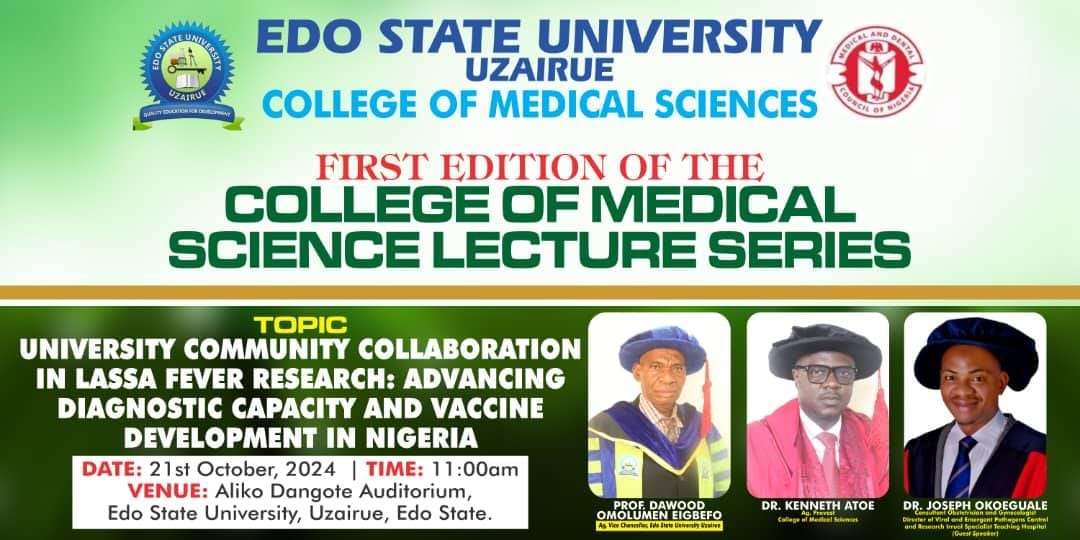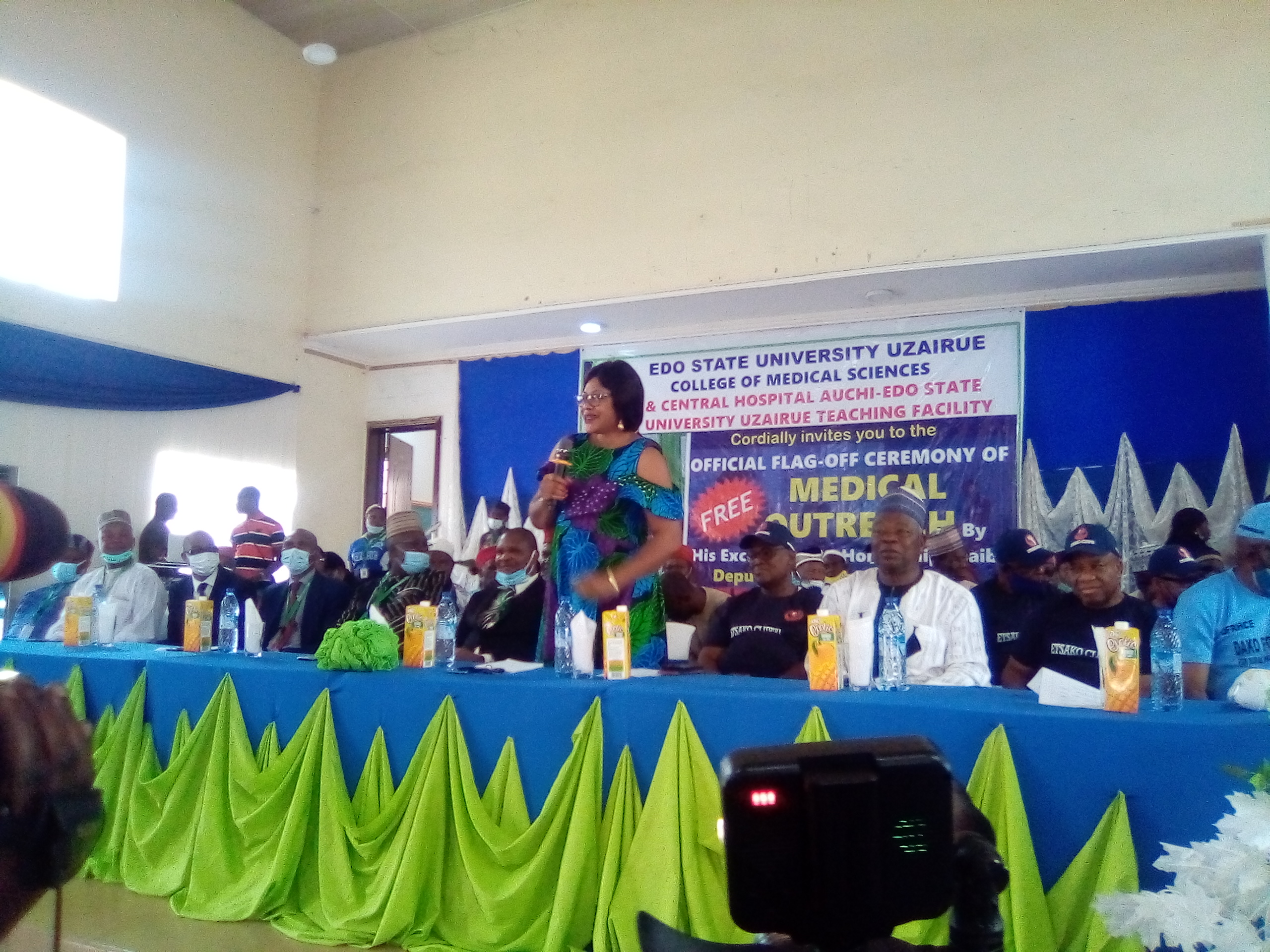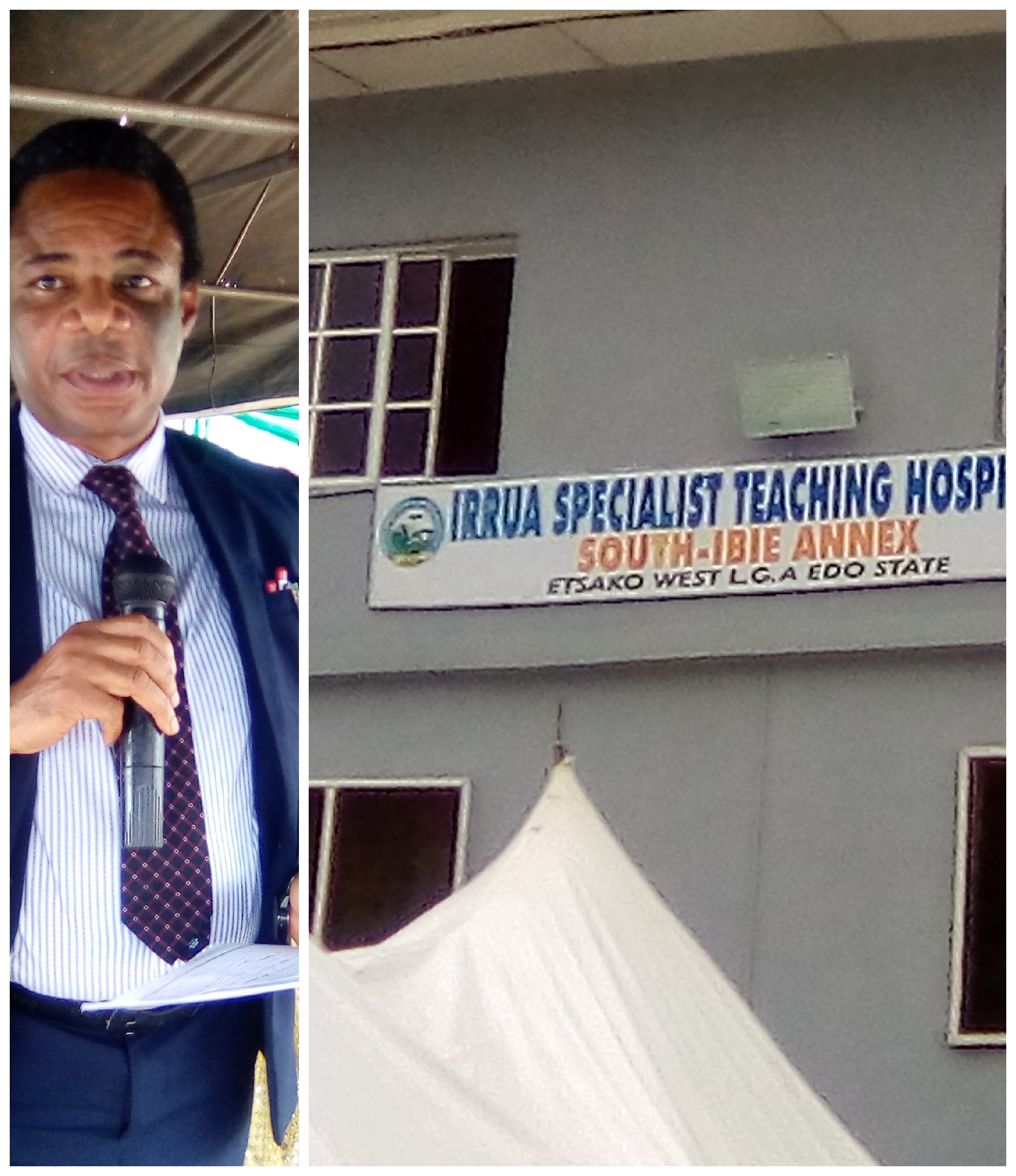Our reporter
Edo State has reported 240 confirmed cases of Lassa fever and 21 deaths between December and March, according to Dr. Joseph Okoeguale, Director of Viral and Emergent Pathogens Control and Research at Irrua Specialist Teaching Hospital.
This revelation shows the continued threat of Lassa fever, which remains a major public health challenge in Nigeria and across West Africa.
Dr. Okoeguale shared these figures while delivering a lecture titled: “University-Community Collaboration in Lassa Fever Research: Advancing Diagnostic Capacity and Vaccine Development in Nigeria” at the inaugural College of Medical Sciences Lecture Series organized by Edo State University, Uzairue.
He stressed the urgent need for research into diagnostics and vaccine development, adding that the World Health Organization (WHO) has classified Lassa fever as a priority disease for global research and development efforts.
In his address, Dr. Okoeguale pointed out that 37.7 million people across 14 West African nations are at risk of contracting Lassa fever annually, with the virus causing over 5,000 deaths.
“Only 20% of infected individuals show symptoms, while 80% remain asymptomatic, often not seeking treatment,” he explained, adding that both males and females, across all age groups, are affected by the virus.
The lecture highlighted WHO’s recommendation for establishing centers of excellence to combat the spread of Lassa fever in endemic regions. Dr. Okoeguale noted that in addition to existing centers in Sierra Leone and Nigeria, new research facilities have been set up at Federal Medical Centers in Owo, Bauchi, and Abakaliki to enhance response efforts.
“The only way to stop the annual outbreak of Lassa fever is through prevention and vaccination,” Dr. Okoeguale said, lamenting the strain the virus continues to place on Nigeria’s healthcare system.
To tackle this, the Institute of Viral and Emergent Pathogens Control and Research at Irrua is actively engaged in clinical trials aimed at developing new treatments and vaccines.
Recent approval from the European and Developing Countries Clinical Trials Partnership (EDCTP) will enable further research into promising drug candidates.
The collaboration between Nigerian institutions and international bodies like the United States Centers for Disease Control is also advancing the fight against the virus.
Dr. Okoeguale mentioned on-going work to sequence not only the Lassa virus but also COVID-19 and monkeypox, all part of a broader effort to strengthen the country’s public health infrastructure.
The Acting Vice Chancellor of Edo State University, Prof. Dawood Egbefo, commended the lecture series for addressing a critical issue impacting both the local community and the nation at large.
He emphasised that tackling Lassa fever requires interdisciplinary collaboration, drawing expertise from fields such as medicine, biology, and social sciences.
This comprehensive approach, he said, is vital for effective research and innovation in Lassa fever diagnostics and vaccine development.
In his welcome address, Acting Provost of the College of Medical Sciences, Dr. Kenneth Atoe, reiterated the institution’s commitment to fostering dialogue among researchers, healthcare professionals, and community stakeholders.
He voiced the importance of evidence-based policy decisions and community-led interventions in controlling the spread of the virus.
The event, which marks the beginning of the university’s efforts to champion public health initiatives, also served as a platform to call for continued support from the university’s management and external partners to ensure the long-term success of Lassa fever research in Nigeria.
Get a premium automobile insurance coverage for your vehicle for as low as #15000 only and claim up to #3,000,000 in damages @Zenith Insurance To signup: WhatsApp/Call: +2349028313757







